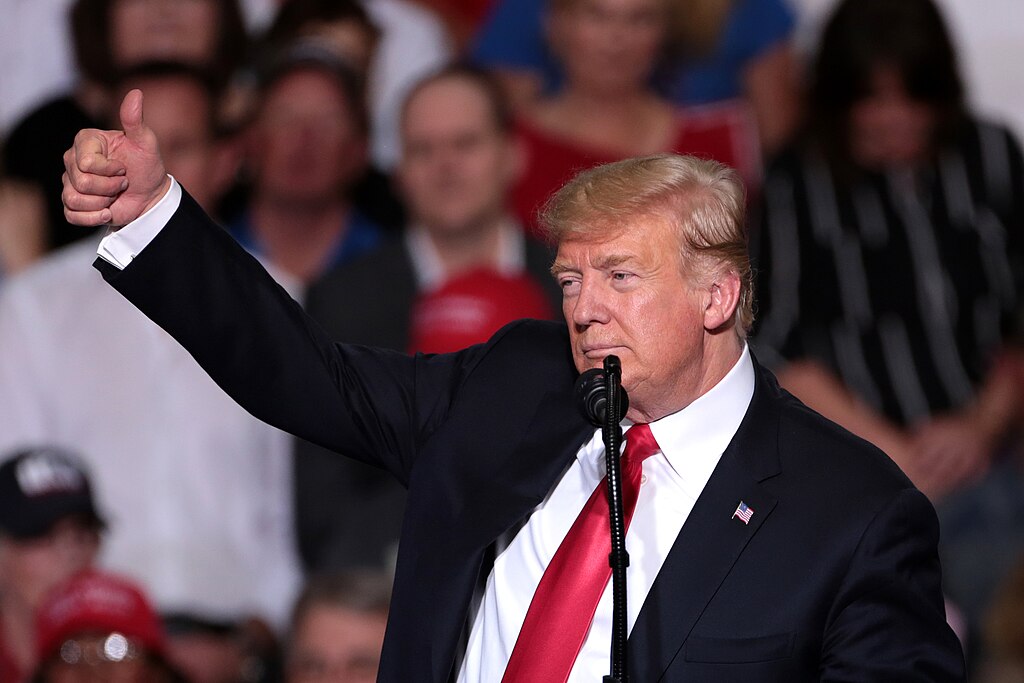Whistleblowers have come forward to disclose a significant security lapse at a recent rally for former President Donald Trump in Butler, Pennsylvania. According to these insiders, the Secret Service failed to check IDs when issuing credentials for restricted areas, raising serious concerns about the integrity of the event's security protocols.
Senator Josh Hawley, who has been a vocal advocate for stringent security measures, brought the allegations to light. The senator, who received the information directly from the whistleblowers, has called for an immediate investigation into the Secret Service's handling of the rally's security.
The Trump rally in Butler on July 29 drew thousands of supporters and was a key event in the former president's ongoing campaign efforts. The revelation that IDs were not checked when issuing credentials for restricted areas has sparked fears about the potential for security breaches and unauthorized access to sensitive zones.
The Secret Service, responsible for protecting the president and other high-profile political figures, is now under scrutiny for this apparent oversight. The lack of ID checks could have allowed individuals without proper vetting to gain access to restricted areas, posing a significant risk to the safety of attendees and the former president himself.
This development comes at a time when the Secret Service's protocols are already under examination following several high-profile security incidents. The agency has been criticized for lapses in judgment and operational failures in recent years, leading to calls for comprehensive reforms and increased accountability.
The whistleblowers' testimonies have prompted Senator Hawley to demand a thorough review of the Secret Service's practices. In a statement, the senator emphasized the importance of robust security measures, especially in the current polarized political climate. He argued that any lapse in protocol could have severe consequences and undermine public trust in the agency's ability to protect national leaders.
As the investigation unfolds, questions about the efficacy of current security measures at political events are likely to intensify. The Secret Service is expected to provide a detailed account of the incident and outline steps to prevent similar breaches in the future. This incident may also prompt a broader reassessment of security protocols at high-profile gatherings, particularly those involving former presidents and other prominent political figures.
The implications of this security lapse extend beyond the immediate concerns of the Butler rally. If the allegations are substantiated, they could lead to significant changes in how security is managed at political events, potentially involving more rigorous vetting processes and stricter adherence to established protocols.
In the meantime, the public and political observers will closely monitor the response from the Secret Service and other relevant authorities. The outcome of this investigation could have far-reaching effects on the agency's operations and the overall approach to securing political events in the United States.



 Norway Opens Corruption Probe Into Former PM and Nobel Committee Chair Thorbjoern Jagland Over Epstein Links
Norway Opens Corruption Probe Into Former PM and Nobel Committee Chair Thorbjoern Jagland Over Epstein Links  Trump Endorses Japan’s Sanae Takaichi Ahead of Crucial Election Amid Market and China Tensions
Trump Endorses Japan’s Sanae Takaichi Ahead of Crucial Election Amid Market and China Tensions  TrumpRx Website Launches to Offer Discounted Prescription Drugs for Cash-Paying Americans
TrumpRx Website Launches to Offer Discounted Prescription Drugs for Cash-Paying Americans  U.S. Announces Additional $6 Million in Humanitarian Aid to Cuba Amid Oil Sanctions and Fuel Shortages
U.S. Announces Additional $6 Million in Humanitarian Aid to Cuba Amid Oil Sanctions and Fuel Shortages  Trump Signs “America First Arms Transfer Strategy” to Prioritize U.S. Weapons Sales
Trump Signs “America First Arms Transfer Strategy” to Prioritize U.S. Weapons Sales  Jack Lang Resigns as Head of Arab World Institute Amid Epstein Controversy
Jack Lang Resigns as Head of Arab World Institute Amid Epstein Controversy  TrumpRx.gov Highlights GLP-1 Drug Discounts but Offers Limited Savings for Most Americans
TrumpRx.gov Highlights GLP-1 Drug Discounts but Offers Limited Savings for Most Americans  New York Legalizes Medical Aid in Dying for Terminally Ill Patients
New York Legalizes Medical Aid in Dying for Terminally Ill Patients  Netanyahu to Meet Trump in Washington as Iran Nuclear Talks Intensify
Netanyahu to Meet Trump in Washington as Iran Nuclear Talks Intensify  Trump Says “Very Good Talks” Underway on Russia-Ukraine War as Peace Efforts Continue
Trump Says “Very Good Talks” Underway on Russia-Ukraine War as Peace Efforts Continue  South Korea Assures U.S. on Trade Deal Commitments Amid Tariff Concerns
South Korea Assures U.S. on Trade Deal Commitments Amid Tariff Concerns  US Pushes Ukraine-Russia Peace Talks Before Summer Amid Escalating Attacks
US Pushes Ukraine-Russia Peace Talks Before Summer Amid Escalating Attacks  Federal Judge Restores Funding for Gateway Rail Tunnel Project
Federal Judge Restores Funding for Gateway Rail Tunnel Project  Japan Election 2026: Sanae Takaichi Poised for Landslide Win Despite Record Snowfall
Japan Election 2026: Sanae Takaichi Poised for Landslide Win Despite Record Snowfall  Trump Allows Commercial Fishing in Protected New England Waters
Trump Allows Commercial Fishing in Protected New England Waters  China Warns US Arms Sales to Taiwan Could Disrupt Trump’s Planned Visit
China Warns US Arms Sales to Taiwan Could Disrupt Trump’s Planned Visit  Missouri Judge Dismisses Lawsuit Challenging Starbucks’ Diversity and Inclusion Policies
Missouri Judge Dismisses Lawsuit Challenging Starbucks’ Diversity and Inclusion Policies 































